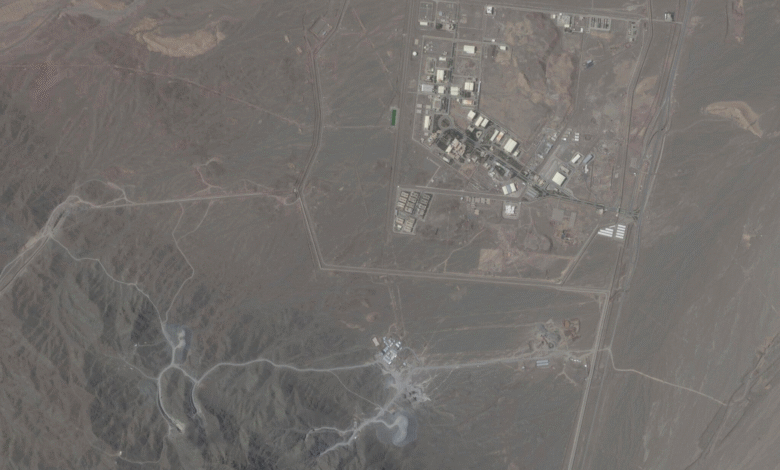Iran Nuclear Program: US Strikes and JD Vance’s Remarks

The Iran nuclear program has become a focal point of international tensions, especially following recent U.S. strikes on several key nuclear sites, including those in Fordo, Natanz, and Isfahan. Vice President JD Vance asserted that the United States is effectively at war with Iran’s nuclear ambitions, expressing confidence that these military actions have significantly delayed Iran’s progress in nuclear weapon development. Iranian leadership, however, has made it clear that they reserve all defense options in light of these strikes, indicating a volatile response could be forthcoming. Vance emphasized the U.S. goal: to foster peace while ensuring that Iran does not possess the means to develop nuclear weapons. This ongoing situation raises critical questions about national security, regional stability, and the potential for Iranian retaliation amid escalating tensions.
The contentious issue surrounding Iran’s atomic initiatives has provoked significant concern on a global scale, particularly as U.S. military operations target vital infrastructure associated with its nuclear endeavors. Speaking recently at a high-profile conference, Vice President JD Vance highlighted the pressing nature of the U.S. commitment to countering Iran’s nuclear threat, framing it as a matter of national defense. With the risk of escalation looming, especially if Iran seeks to retaliate against U.S. actions, the implications of this diplomatic standoff are profound. The unfolding narrative not only underscores the urgency of discussions on Iran’s ability to develop nuclear capabilities but also spotlights the strategic defense options that both nations may explore in response to this crisis. As the situation develops, it will be crucial to analyze both the military strategies employed and the diplomatic avenues pursued in an attempt to mitigate this escalating conflict.
Understanding the Iran Nuclear Program
The Iran nuclear program has been a focal point of international scrutiny for years, with various nations expressing concern over its potential for developing nuclear weapons. Iran’s pursuit of nuclear technology has drawn warnings from the U.S. and its allies, who fear that a nuclear-capable Iran could significantly destabilize the regional security landscape in the Middle East. This concern was amplified with recent revelations regarding the expansion of Iran’s nuclear facilities, prompting the U.S. to undertake military actions aimed at curtailing Tehran’s ambitions.
In response to these developments, the international community has engaged in a complex dialogue with Iran, exploring diplomatic avenues to manage the nation’s nuclear aspirations. The recent airstrikes on Iran’s nuclear sites indicate a shift in U.S. strategy, moving from negotiations toward a more assertive military stance. Experts argue that addressing Iran’s nuclear ambitions requires a combination of diplomatic pressure and credible deterrent measures to ensure that Tehran meets its international obligations.
Frequently Asked Questions
What did Vice President JD Vance say about the Iran nuclear program after U.S. strikes?
Vice President JD Vance stated that the United States is effectively ‘at war with Iran’s nuclear program’ following military strikes on three key nuclear sites in Iran. He emphasized that the airstrikes aimed to substantially delay Iran’s ability to develop a nuclear weapon.
How does Iran plan to respond to U.S. strikes on its nuclear program?
In response to the U.S. strikes on its nuclear facilities, Iranian Foreign Minister Abbas Araghchi declared that Tehran reserves all defensive options. This indicates that Iran may pursue a range of strategies to defend against perceived threats to its nuclear program.
What are the implications of the U.S. targeting Iran’s nuclear weapon development sites?
Targeting Iran’s nuclear weapon development sites, such as those in Fordo, Natanz, and Isfahan, is intended to hinder Iran’s nuclear ambitions. Vice President Vance expressed confidence that these actions have significantly delayed Iran’s progress in developing nuclear weapons.
What is JD Vance’s stance on potential Iranian retaliation against the U.S.?
During his remarks, Vice President JD Vance acknowledged the possibility of Iranian retaliation but clarified that the U.S. does not seek war with Iran. He emphasized a desire for peace, contingent upon Iran’s compliance with not pursuing a nuclear weapons program.
What did JD Vance achieve through the recent airstrikes on Iran’s nuclear facilities?
Vice President JD Vance articulated that the objective of the recent airstrikes on Iran’s nuclear facilities was to hinder their progress toward developing a nuclear weapon. He stated that the strikes were successful in ‘substantially delaying’ Iran’s nuclear program.
Is the United States officially at war with Iran?
Despite the military action against Iran’s nuclear sites, JD Vance clarified that the U.S. is ‘not at war with Iran,’ but is focused on opposing Iran’s nuclear program. The goal remains to ensure Iran does not develop nuclear weapon capabilities.
What is the significance of JD Vance’s comments on the Iran nuclear program at the Munich Leaders meeting?
At the Munich Leaders meeting, JD Vance underscored the U.S. government’s commitment to preventing Iran from achieving nuclear weapon capabilities. His comments highlight the international stakes involved and reinforce U.S. policy on nuclear non-proliferation.
| Key Point | Details |
|---|---|
| Vice President’s Statement | The U.S. is engaged in a conflict with Iran’s nuclear program, not with the nation itself. |
| U.S. Airstrikes | Recent airstrikes targeted nuclear facilities at Fordo, Natanz, and Isfahan. |
| Iran’s Response | Iranian Foreign Minister Abbas Araghchi emphasized Tehran’s right to self-defense. |
| U.S. Goals | Vance claims the strikes have significantly delayed Iran’s nuclear weapon development. |
| Future Intentions | The U.S. seeks peace without a nuclear weapons program in Iran. |
Summary
The Iran nuclear program has become a focal point of international tension, particularly highlighted by Vice President JD Vance’s remarks regarding U.S. military action against specific nuclear sites. The U.S. aims to halt Iran’s development of nuclear weapons while advocating for peace. With Iran asserting its right to defend itself, the ongoing situation around the Iran nuclear program remains critical as both nations navigate their future relations.




